Abstract 5/2015
Table of content
Andrzej Szarata – The results of travel survey in Cracow – Complex Traffic Survey (CTS) 2013
Tomasz Dybicz – Bottleneck identification with use of floating car data (FCD)
Maciej Helbin, Marcin Wołek, Olgierd Wyszomirski – Conditions of representativeness of the marketing research on travel preferences and behavior of inhabitants on the example of Gdynia
Katarzyna Hebel – Transport demand in marketing research of Gdynia’s inhabitants on the example of directness
Jan Gregorowicz, Piotr Trybuś – Selected experiences of cordon and section measurements of traffic flow with use of recording cars and number plates
Aneta Kostelecka – Planning of transport behaviour research
Marek Bauer – Discussion on validity of conducting of complex traffic survey in the framework of the national census
Abstracts
Andrzej Szarata
The results of travel survey in Cracow – Complex Traffic Survey (CTS) 2013
Abstract: In 2013, household survey in the framework of so called Complex Traffic Survey was conducted in Cracow and surrounded communities. In this paper selected results of the survey together with remarks and interpretation are presented. The survey was done in the framework of research project of the City of Cracow aimed at the development of the methodology for continuous monitoring of inhabitants’ travel behavior. Main goal of the household survey was to gain data on travel habits of Cracow’s inhabitants in order to evaluate public transport system. Moreover, gathered data will be used for development of transportation model. Guidelines and survey methodology as well as selected results, which are small part of available database were presented in the article. Presented results are related to: mobility rate, trip purposes, modal split or the share of peak hours.
Keywords: complex traffic survey, travel survey, household questionnaire, travel preferences survey
Tomasz Dybicz
Bottleneck identification with use of floating car data (FCD)
Abstract: The paper presents an example of the possibilities of using floating car data FCD in complex traffic survey . On the basis of the real FCD data delivered by the CE-Traffic a demonstration of how FCD can be used for active bottleneck detection has been presented. It also provides description of how detections of shock waves with application of FCD data can be obtained. Presented example demonstrates significant potential benefits that may be gained through use of FCD in complex traffic survey and in traffic modeling and forecasting.
Keywords: complex traffic survey, capacity,floating car data (FCD)
Maciej Helbin, Marcin Wołek, Olgierd Wyszomirski
Conditions of representativeness of the marketing research on travel preferences and behavior of inhabitants on the example of Gdynia
Abstract: The marketing research on travel preferences and behaviour of the city inhabitants should be representative. In the article the basic conditions of their representativeness, especially methodological and organizational problems, are introduced. In order to obtain reach representative results of the research random sampling should be applied. The highest statistical effectiveness gives the stratified sample. The correct stratified sampling meets the barrier in getting a proper list of population in which the random sampling would be applied. Taking into account that problem the technics of random route is used in sampling. There are some serious doubts related to the question if sampling in such a way is representative. In the reference to the research representativeness fundamental importance has also the choice of research method. Due to extensiveness and complexity of the research individual interview is the appropriate method. There are some problems in proper use of that method. A challenge of the research is also including range of pedestrian travels. Valuable experiences in the research on travel behaviour and preferences has Zarząd Komunikacji Miejskiej w Gdyni (Public Transport Authority in Gdynia) although this organization is affected by different difficulties. Those experiences are presented in the article. The main practical problems as well as the possibility to reduce negative results are discussed in the paper.
Keywords: marketing research, representativeness, travel preferences and behaviour
Katarzyna Hebel
Transport demand in marketing research of Gdynia’s inhabitants on the example of directness
Abstract: Directness of travel is the most important passengers’ demand. This is why it needs to be studied. In practice, studies are carried out in the research of travel preferences. The article presents the results of studies conducted in Gdynia in 2010 and in 2013. Comparing of opinions of Gdynia’s inhabitants in the two rounds of marketing researches enabled to formulate reliably conclusions. In the article the process of prioritization of travel postulates is presented. There is also indicated the rank of directness, identified determinants affecting the assessment of directness in the opinion of the inhabitants of Gdynia. At the end also analysis of the impact of opinion about directness for the overall rating of public transport carried out by passengers is presented.
Keywords: marketing researches, transport preferences, directness of travel
Jan Gregorowicz, Piotr Trybuś
Selected experiences of cordon and section measurements of traffic flow with use of recording cars and number plates
Abstract: Technical means for measurements, starting with its conducting in the field through transformation of alphanumeric data from number plates recorded on the tape to the *txt file which enables obtaining data from the CEPIK database, is nowadays not a problem and may be conducted in the relatively short time that enables drivers to remember information about travel during the traffic flow measurement. The problem consists of lack of completeness of database on cars’ owners’ mail addresses; technical, logistics and financial aspects of delivering of inquiries, legal and formal issues referring to sending questions directly to the e-mail addresses of cars’ owners and lack of sufficient number of cameras for continuous measuring, not dependent on the time of day. Possibility of analysis of data in the GIS format is worthy to note. Scope of custom data available after appropriate measurement and transformation gives new possibility for analysis. Its use in creation of numerical model of traffic seems to be fully justified although it should be further studied. Use of custom data in works on transportation studies in urban areas and transport corridors analysis have confirmed its utility in the analyzed areas. Quick progress of technology and fall in prices of equipment provide large possibilities of the method’s development – especially transformation of the obtained data.
Keywords: complex traffic survey,methods of traffic flow measurement
Aneta Kostelecka
Planning of transport behaviour research
Abstract: Article is aimed primarily at people involved in the planning the public transport behaviour research, working in the institutions contracting this research or acting on its behalf. The article indicates key elements guaranteing high quality research data, providing reliable basis of the construction of the assumptions for transport models. The article indicates activities to undertake during preparation of public procurement documentation and selection of bidders. It discusses possible methods to select a research sample and to prepare a questionnaire. The attention is paid on the key elements in the process of development of the research results. The article describes the most often occured problems of the research process, as well as methods to reduce their impact on the quality of collected data.
Keywords: transport behaviour research, quality of research, research sample
Marek Bauer
Discussion on validity of conducting of complex traffic survey in the framework of the national census
Abstract: Results of complex traffic survey are the basis for reliable planning of significant transport investments in the city, agglomeration or region. In the article tentative concept of including complex traffic survey in the framework of the national census (NSP) has been presented. Legal regulations related to census as well as its organisation in 2011 have been discussed and additionally possibilities of extending its use in the next national census have been mentioned. National census provides possibility to reach much more large number of respondents with questions related to their travel behaviour. Including small modifications in basic questions of the census, it is possible to meaningly increase usefulness of information related to travelling used for modelling, maintain of daily transport services and planning of future elements of transport network. Obviously, widening of the scope of interviews in households has to be connected with improvement or at least maintaining of acceptable quality of survey. The proposed idea defines direction of inquiry of the best use of the census for the purpose of travel survey. Following this, it seems to be advisable to review all modules of basic questions of the census. Changes can bring many improvements in different fields, first of all, prestige of survey will grow up if its results directly cause improvement of quality of inhabitants’ life.
Keywords: complex traffic surveys, travel behaviour, national census
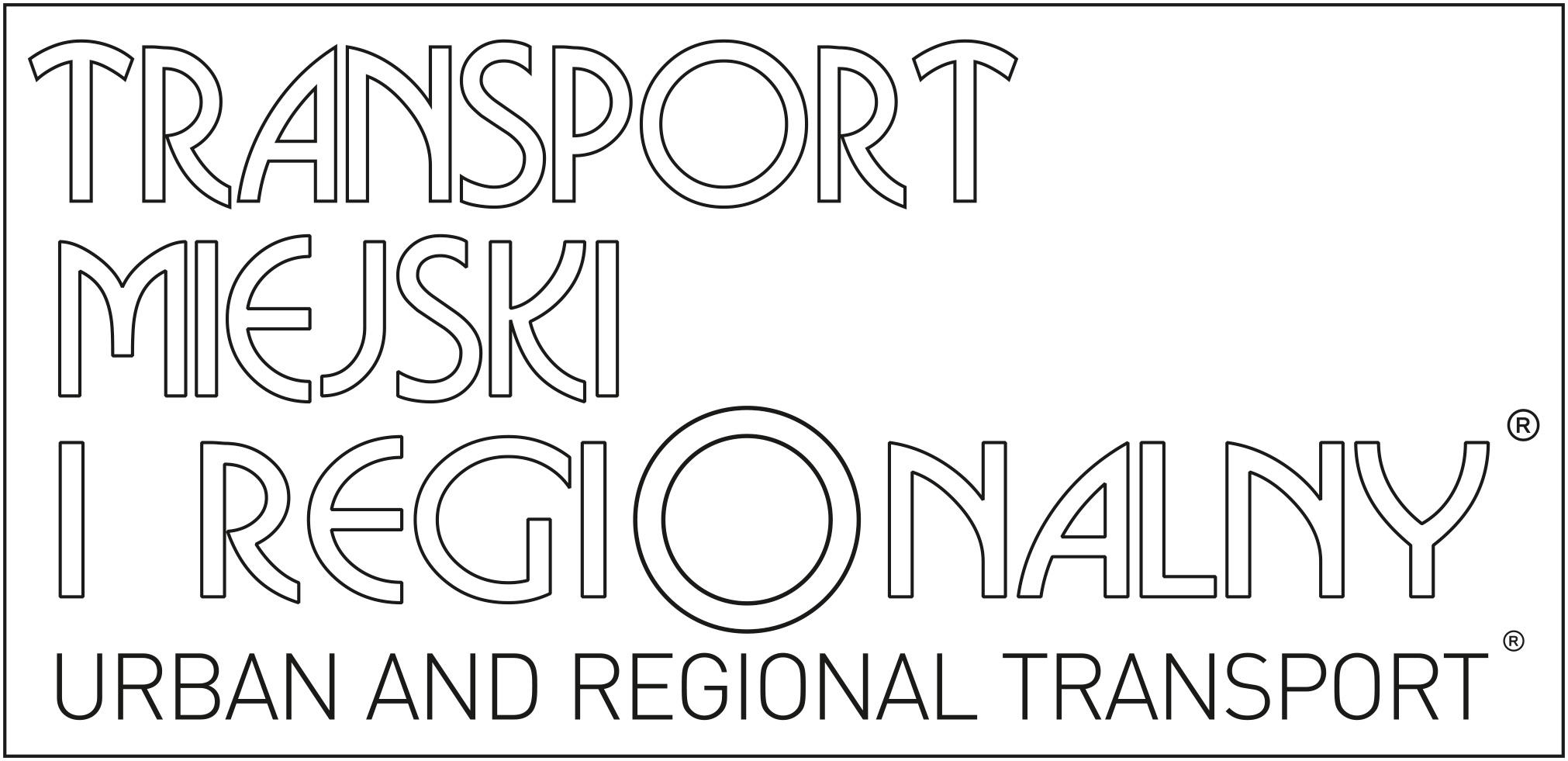
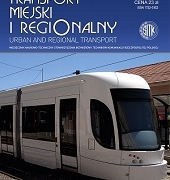
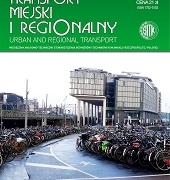
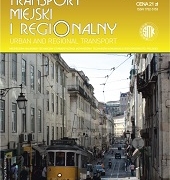
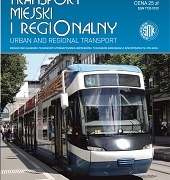
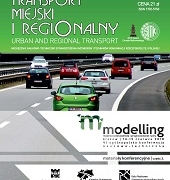
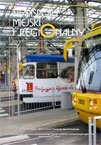 SITK RP
SITK RP 
 SITK RP
SITK RP SITK RP
SITK RP